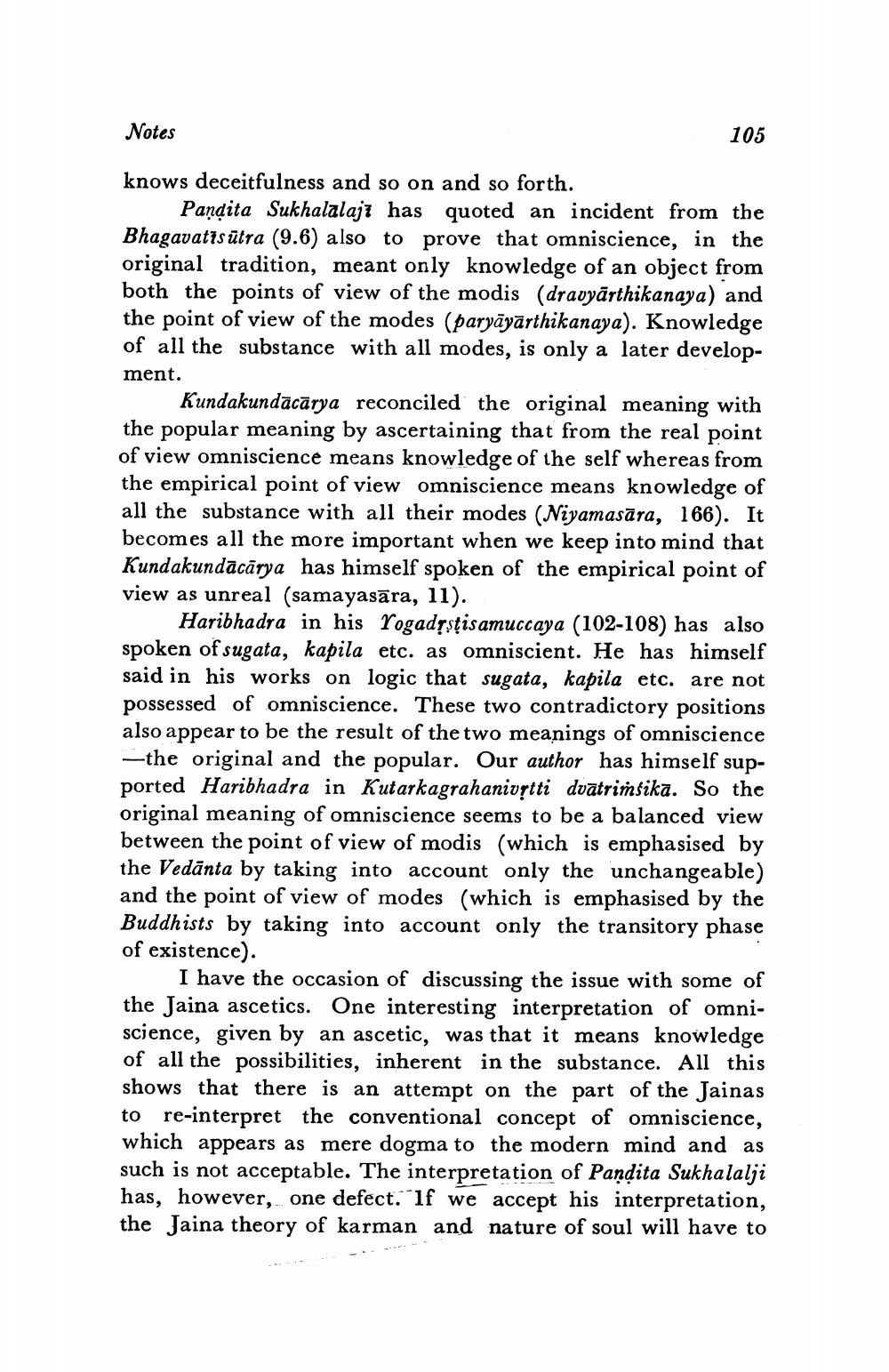________________
Notes
105 knows deceitfulness and so on and so forth.
Pandita Sukhalalaji has quoted an incident from the Bhagavatisūtra (9.6) also to prove that omniscience, in the original tradition, meant only knowledge of an object from both the points of view of the modis (dravyārthikanaya) and the point of view of the modes (paryāyārthikanaya). Knowledge of all the substance with all modes, is only a later development.
Kundakundācārya reconciled the original meaning with the popular meaning by ascertaining that from the real point of view omniscience means knowledge of the self whereas from the empirical point of view omniscience means knowledge of all the substance with all their modes (Niyamasāra, 166). It becomes all the more important when we keep into mind that Kundakundācārya has himself spoken of the empirical point of view as unreal (samayasāra, 11).
Haribhadra in his rogadīsțisamuccaya (102-108) has also spoken of sugata, kapila etc. as omniscient. He has himself said in his works on logic that sugata, kapila etc. are not possessed of omniscience. These two contradictory positions also appear to be the result of the two meanings of omniscience
-the original and the popular. Our author has himself supported Haribhadra in Kutarkagrahanivrtti dvātrissika. So the original meaning of omniscience seems to be a balanced view between the point of view of modis (which is emphasised by the Vedānta by taking into account only the unchangeable) and the point of view of modes (which is emphasised by the Buddhists by taking into account only the transitory phase of existence).
I have the occasion of discussing the issue with some of the Jaina ascetics. One interesting interpretation of omniscience, given by an ascetic, was that it means knowledge of all the possibilities, inherent in the substance. All this shows that there is an attempt on the part of the Jainas to re-interpret the conventional concept of omniscience, which appears as mere dogma to the modern mind and as such is not acceptable. The interpretation of Pandita Sukhalalji has, however, one defect. If we accept his interpretation, the Jaina theory of karman and nature of soul will have to




